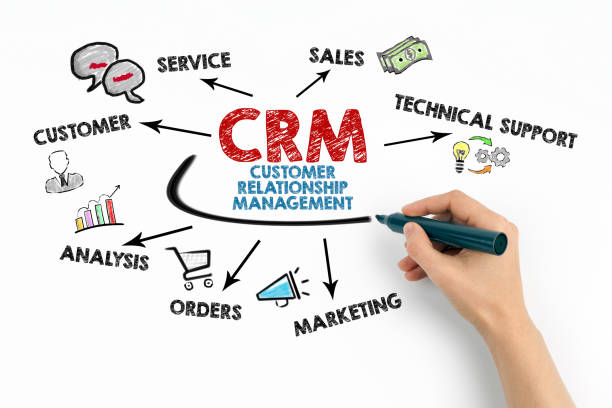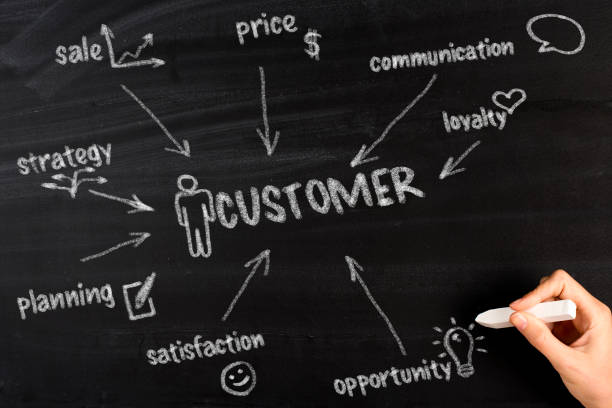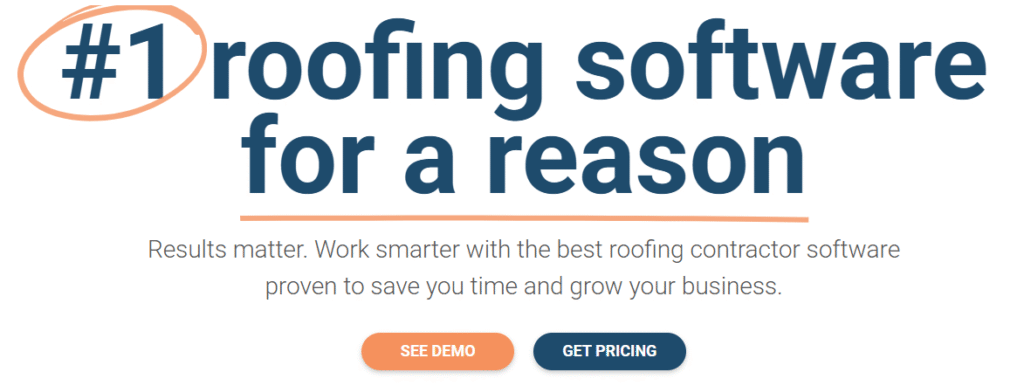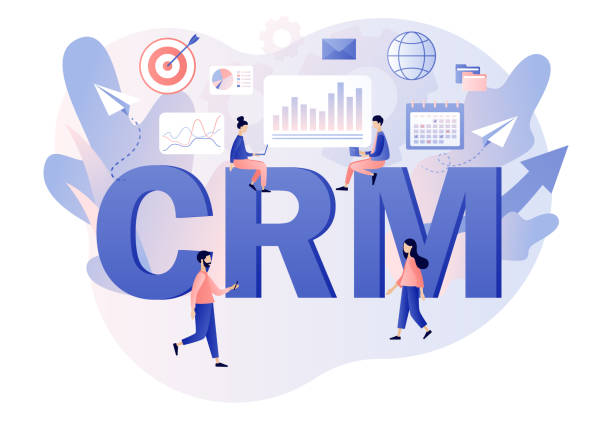Are you a contractor searching for the best roofing CRM to finally get rid of messy spreadsheets, missed leads, and constant back-and-forth with customers? The right CRM for roofing contractors is the tool that can help you organize projects, close more deals, and run your business with less stress.
After testing and comparing several platforms, I’ve found that not all CRMs are created equal when it comes to roofing businesses. Some are too generic, while others lack the features roofers actually need in the field. That’s why I put together this list of the 17 best roofing CRM software options. These truly stand out for managing leads, tracking jobs, scheduling crews, and keeping customers happy.
What is a Roofing CRM?

A roofing CRM (Customer Relationship Management system) is software designed to help roofing contractors manage every stage of their business – from capturing leads and sending estimates to scheduling crews and closing jobs. While general CRMs like Salesforce or HubSpot focus on sales and marketing, a roofing CRM goes a step further by including features tailored to the unique needs of roofing companies.
Unlike standard CRMs, which are built for a wide range of industries, a CRM for roofing contractors is built specifically to handle the challenges of the roofing business. That means better tools for on-site job tracking, integrations with roofing measurement apps, and streamlined processes that fit the day-to-day work of contractors and their crews.
Here are the biggest benefits of using a roofing-specific CRM:
- Lead management & sales pipeline tracking: Capture and organize leads, track their progress, and ensure no opportunities slip through the cracks.
- Scheduling & dispatching crews: Assign jobs to field teams, coordinate schedules, and reduce downtime.
- Estimating & proposals: Quickly generate accurate bids and proposals, often with built-in templates or measurement integrations.
- Customer communication & follow-ups: Keep a record of calls, emails, and texts to maintain strong customer relationships.
- Integration with invoicing & payment tools: Streamline billing, payments, and accounting by connecting with platforms like QuickBooks or Xero.
Related: 13 Best Kitchen Design Software for Mac Monterey.
Why Roofing Contractors Need a CRM?

Running a roofing business means juggling dozens of moving parts—leads, estimates, crews, and customer communication. Without the right system, it’s easy for things to slip through the cracks. That’s where a roofing CRM comes in.
Designed to streamline operations, a CRM helps contractors save time, close more deals, and deliver a better customer experience.
Here are the top roofing CRM benefits that make it a must-have tool:
1. Importance of Automation for Roofers
A roofing CRM automates repetitive tasks like sending follow-up emails, scheduling appointments, or assigning jobs to crews. This reduces manual work, speeds up your workflow, and ensures nothing is forgotten—so you can focus on growing your business instead of chasing paperwork.
2. Reducing Paperwork & Improving Accuracy
No more lost sticky notes, messy spreadsheets, or handwritten estimates. With a roofing CRM, everything is digital and stored in one place. From contracts to inspection photos, you can easily access accurate data when you need it, improving efficiency and professionalism.
3. Better Lead Conversion Rates
Leads often slip away because they aren’t followed up with quickly enough. A roofing sales software solution helps you track every prospect through your sales pipeline and automates reminders for follow-ups. This keeps potential customers engaged and increases your chances of closing the deal.
4. Improved Customer Experience
Roofing is a competitive industry, and customer satisfaction matters. With CRM tools, contractors can communicate more effectively, provide faster updates, and respond quickly to customer inquiries. A smoother experience builds trust, leading to more referrals and repeat business.
5. Tracking Jobs from Inspection to Completion
From the first roof inspection to the final payment, a roofing CRM gives you full visibility into every stage of the project. You’ll know what’s happening, who’s responsible, and what’s next. This helps you keep projects on schedule and under control.
Key Features to Look for in a Roofing CRM

1. Mobile Accessibility (Field Use)
Roofing crews spend most of their time on job sites, not behind a desk. A good CRM must be mobile-friendly, allowing contractors to update job details, upload photos, and access customer information directly from their phones or tablets.
2. Integration with Accounting Software
Financial accuracy is critical in contracting. Look for a roofing CRM that integrates seamlessly with accounting platforms like QuickBooks or Xero. This ensures smooth invoicing, payment tracking, and real-time financial reporting without double-entry headaches.
3. Estimating & Proposals
Accurate bids can make or break a roofing job. The best CRMs include estimating tools and proposal templates that allow you to quickly generate professional, branded quotes—helping you win more jobs and save hours of manual work.
4. Job Scheduling & Crew Management
Managing multiple crews and jobs can quickly get complicated. A roofing CRM with built-in scheduling helps assign the right crews to the right projects, reduce downtime, and keep work moving efficiently.
5. Photo & Document Storage
From before-and-after project photos to inspection reports and signed contracts, contractors need a secure place to store everything. Roofing-specific CRMs allow easy upload and retrieval of files, ensuring your team always has the right information on hand.
6. Communication Tracking (Calls, Texts, Emails)
Customer communication is a huge part of the roofing business. The best roofing CRMs keep track of every call, text, or email in one place, so nothing slips through the cracks. This builds stronger client relationships and helps avoid costly miscommunication.
7. Reporting & Analytics
Data is power. Look for a CRM that offers reports on sales performance, job profitability, and lead conversion rates. These insights help roofing contractors make smarter business decisions and spot opportunities for growth.
8. Scalability & Pricing
Your roofing business may start small, but the right CRM should grow with you. Choose a platform that offers flexible plans—so you’re not overpaying early on, but you can scale as your team, crews, and customer base expand.
Read Also: Is Affinity CRM the Best CRM for Deal-Driven Teams? Full Review & Alternatives.
The 17 Best Roofing CRM
After testing and researching multiple platforms, I’ve narrowed down the best roofing CRM software options that contractors should consider this year. Each tool has its strengths, pricing, and best-fit use, so you can find the one that matches your business needs.
1. JobNimbus

JobNimbus is one of the best and popular CRMs built specifically for roofing contractors. It combines project management, customer communication, and sales tracking in one platform, making it a top choice for roofers who want an all-in-one solution.
Best For Roofing contractors who want a well-rounded CRM that covers sales, jobs, and communication in one place.
Key Features:
- Lead and contact management
- Job scheduling and crew assignments
- Photo and document storage
- Integration with QuickBooks and other tools
- Mobile app for field updates
Pros:
- Intuitive and easy to use
- Excellent integrations with other roofing apps
- Strong customer support and training
Cons:
- Pricey with add-ons
- Reporting features could be more advanced
2. AccuLynx

AccuLynx is a powerful roofing business software designed to help contractors scale their operations. It focuses heavily on project management and includes tools for estimating, production, and communication.
Best For Mid-to-large roofing companies that need advanced estimating, job costing, and project tracking features.
Key Features:
- Aerial measurement integrations (EagleView, GAF QuickMeasure)
- Estimating and proposals
- Crew scheduling and production management
- Customer communication tracking
- Mobile app for on-site use
Pros:
- Great for larger roofing businesses
- Strong estimating and job costing features
- Integration with aerial measurement tools saves time
Cons:
- Steeper learning curve compared to other CRMs
- Pricing is on the higher side
3. Roofr

Roofr is a fast-growing roofing platform known for its easy-to-use estimating and proposal tools. It’s designed for contractors who want quick, accurate estimates and simple job management without a heavy learning curve.
Best For Small to mid-sized roofing contractors who need fast estimates and professional proposals.
Key Features:
- Instant roof measurement reports
- Proposal generation with e-signature
- Lead and customer management
- Photo and file storage
- Integration with QuickBooks
Pros:
- Very easy to set up and use
- Affordable compared to many CRMs
- Measurement reports save time on inspections
Cons:
- Limited advanced reporting features
- Not as robust for crew scheduling as others
4. Spotio

Spotio is a sales-focused CRM often used by roofing contractors with door-to-door sales teams. It’s designed to track sales activities, manage territories, and optimize lead conversion in highly competitive markets.
Best For Roofing companies that rely heavily on door-to-door sales and want to maximize team performance.
Key Features:
- Territory management and mapping
- Sales tracking and pipeline management
- Team performance dashboards
- Mobile app for field sales teams
- Integration with major CRMs and sales tools
Pros:
- Excellent for door-to-door roofing sales teams
- Helps optimize sales performance
- Strong mapping and territory features
Cons:
- Not roofing-specific (lacks built-in job scheduling/production tools)
- Requires integration with other CRMs for full functionality
5. Salesforce
Salesforce is one of the world’s leading CRM platforms and can be customized extensively for larger roofing companies. While it isn’t roofing-specific out of the box, its flexibility makes it powerful for larger contractors who need enterprise-level solutions.
Key Features:
- Advanced sales pipeline management
- Customizable workflows and automations
- Integration with thousands of apps and tools
- AI-powered analytics and forecasting
- Scalable for enterprise use
Pros:
- Highly customizable for any roofing workflow
- Advanced reporting and analytics
- Excellent for multi-location or enterprise roofing companies
Cons:
- Complex setup and onboarding
- Expensive compared to roofing-specific CRMs
6. HubSpot CRM
HubSpot CRM is a free, user-friendly platform that excels in inbound marketing and customer communication. While not built solely for roofers, it’s great for contractors who focus on generating leads through digital marketing and want strong automation tools.
Key Features:
- Free CRM with core contact management
- Marketing automation tools (email campaigns, forms, chatbots)
- Sales pipeline tracking
- Customer support features (tickets, chat, knowledge base)
- Integrates with popular roofing business tools
Pros:
- Free plan is very generous
- Easy to use with a clean interface
- Strong inbound marketing and email automation features
Cons:
- Lacks roofing-specific project management tools
- Can get expensive for advanced marketing features
7. Zoho CRM
Zoho CRM is a budget-friendly, flexible option for roofing contractors looking for strong sales tracking and automation without breaking the bank. While not roofing-specific, it’s widely used across industries and can be tailored to roofing needs.
Key Features:
- Contact and lead management
- Workflow automation
- Multichannel communication (phone, email, social media)
- Sales forecasting and reporting
- Mobile app for field teams
Pros:
- Affordable pricing
- Highly customizable workflows
- Wide range of integrations within the Zoho suite
Cons:
- Lacks built-in roofing features (estimating, crew management)
- Interface can feel overwhelming at first
8. CompanyCam (Photo-Based CRM for Roofers)

CompanyCam isn’t a traditional CRM, but it’s widely used in the roofing industry as a photo-based project management tool. It’s great for contractors who need to document jobs visually and keep all project media in one place.
Key Features:
- Unlimited photo storage with automatic organization
- Real-time photo sharing with teams and clients
- Project timelines with visual updates
- Integration with roofing CRMs like JobNimbus and AccuLynx
- Mobile app with GPS-stamped photos
Pros:
- Extremely useful for documenting roofing projects
- Easy for crews to use in the field
- Integrates with many popular roofing CRMs
Cons:
- Not a full-featured CRM (needs to be paired with another system)
- Limited sales and automation features
9. Monday.com
Monday.com is a project management platform that can be customized into a CRM for roofing contractors. Its drag-and-drop boards make it easy to track jobs, manage crews, and collaborate across teams.
Key Features:
- Customizable workflows for sales and projects
- Job scheduling and task assignments
- File storage and communication tools
- Integrations with QuickBooks, Gmail, and more
- Mobile app for on-site updates
Pros:
- Extremely flexible and visual interface
- Affordable plans for small teams
- Great collaboration features for office and field staff
Cons:
- Not roofing-specific (requires customization)
- Can be overwhelming if you need a turnkey CRM solution
10. Buildertrend
Buildertrend is a construction management platform that works well for roofing contractors handling complex projects. It combines CRM, project management, and financial tools into one software solution.
Key Features:
- Lead tracking and proposals
- Project scheduling and crew assignments
- Change order management
- Invoicing and payment processing
- Mobile app for field use
Pros:
- Comprehensive all-in-one platform
- Strong financial and job costing tools
- Great for contractors who manage multiple project types
Cons:
- More complex than roofing-only CRMs
- Pricing is higher compared to basic tools
11. Jobber
Jobber is a popular field service CRM that works well for roofing companies offering repair and maintenance services. It emphasizes scheduling, invoicing, and client management.
Key Features:
- Job scheduling and dispatching
- Quoting and invoicing
- Client communication tools
- Online booking and payments
- Mobile app for field teams
Pros:
- Simple, user-friendly interface
- Excellent scheduling and invoicing features
- Affordable for small roofing contractors
Cons:
- Lacks advanced project management features
- Limited customization for large teams
12. FieldPulse
FieldPulse is a field service management CRM designed for contractors, including roofers. It focuses on mobile usability and all-in-one business management.
Key Features:
- Scheduling and dispatching
- Estimates, invoices, and payments
- Customer communication tracking
- Inventory management
- Integrations with QuickBooks and Xero
Pros:
- Strong mobile app for field teams
- Affordable compared to enterprise CRMs
- All-in-one functionality for small businesses
Cons:
- Reporting features are somewhat limited
- May be too simple for larger roofing companies
13. Kickserv
Kickserv is a service management CRM built for contractors and home service businesses. It helps roofing contractors streamline scheduling, estimates, and payments.
Key Features:
- Job scheduling and calendar management
- Lead and customer tracking
- Estimates and invoicing
- Payment collection and integration with QuickBooks
- Mobile app for crews
Pros:
- Easy to set up and use
- Affordable for smaller roofing businesses
- Strong QuickBooks integration
Cons:
- Limited advanced features
- Interface could be more modern
14 Pipedrive
Pipedrive is a sales-focused CRM that can be adapted for roofing businesses. It’s known for its intuitive pipeline management and automation tools.
Key Features:
- Drag-and-drop sales pipeline tracking
- Workflow automation
- Email tracking and integration
- Mobile app for field sales
- Reporting and forecasting
Pros:
- Very easy to use
- Affordable and flexible
- Strong focus on sales pipeline visibility
Cons:
- Not roofing-specific (no crew scheduling or estimating)
- Requires integrations for full functionality
15. Thryv
Thryv is a business management platform for small contractors, offering CRM, invoicing, scheduling, and marketing automation in one solution.
Key Features:
- Customer relationship and contact management
- Scheduling and online bookin
- Invoicing and payments
- Marketing automation (email, SMS, social media)
- Client communication portal
Pros:
- All-in-one solution for small businesses
- Includes marketing features
- Easy to use with good customer support
Cons:
- Pricing is higher than simpler CRMs
- Not roofing-specific
16. Nutshell CRM
Nutshell CRM is a sales and marketing-focused CRM that’s simple yet powerful for roofing businesses looking to improve lead conversion.
Key Features:
- Sales automation and pipeline management
- Email marketing campaigns
- Team collaboration tools
- Reporting and analytics
- Integrations with popular business apps
Pros:
- Easy to learn and implement
- Strong sales and marketing automation
- Affordable pricing
Cons:
- Not roofing-specific (requires customization)
- Limited advanced job management features
17. RoofSnap
RoofSnap is a roofing-specific tool focused on estimating, proposals, and roof measurements. While not a full CRM, it’s an excellent complement to one, especially for contractors who want fast, accurate bids.
Key Features:
- Roof measurement reports with aerial imagery
- Instant estimates and proposals
- Digital contracts with e-signatures
- Photo and document storage
- Integration with CRMs and accounting tools
Pros:
- Roofing-specific estimating tool
- Speeds up the bidding process
- Professional proposals with branding
Cons:
- Not a full-featured CRM (needs pairing with one)
- Limited job management tools
How to Choose the Best Roofing CRM for Your Business
Step 1: Define Your Business Size and Goals
Before shopping for software, determine whether you’re a small roofing company looking to stay organized or a growing contractor needing advanced project management. Enterprise-level CRMs like Salesforce may be overkill for a small team, while lightweight tools might not support larger businesses.
Step 2: List Essential Features You Need
Not every CRM offers the same capabilities. Make a list of your must-have features, such as:
- Estimating and proposals
- Job scheduling and crew management
- Photo/document storage
- Mobile access for field crews
- Integrations with QuickBooks or Xero
Step 3: Compare Pricing & Scalability
Budget is always a factor, but so is scalability. Choose a CRM that fits your budget now while allowing you to upgrade as your business grows. Many CRMs offer tiered pricing so you can start small and scale up without switching platforms.
Step 4: Test Free Trials Before Committing
Most of the best CRM for roofing contractors offer free trials or demo versions. Use them to test features, ease of use, and customer support before making a final decision. Hands-on experience will quickly reveal whether a tool is a good fit.
Step 5: Get Team Feedback Before Rollout
Your office staff and field crews will be the ones using the software daily, so their input matters. Test the CRM with a small group and gather feedback before rolling it out company-wide. This helps ensure smooth adoption and fewer headaches later.
Conclusion – Best Roofing CRM
Finding the best roofing CRM is key to scaling your business, staying organized, and keeping customers happy. For budget-conscious contractors, Zoho CRM and Jobber are strong picks. Larger companies may benefit most from Salesforce, while JobNimbus is one of the top roofing-specific solutions with excellent mobile features.
Test out a roofing CRM today to see how it transforms your workflow.
